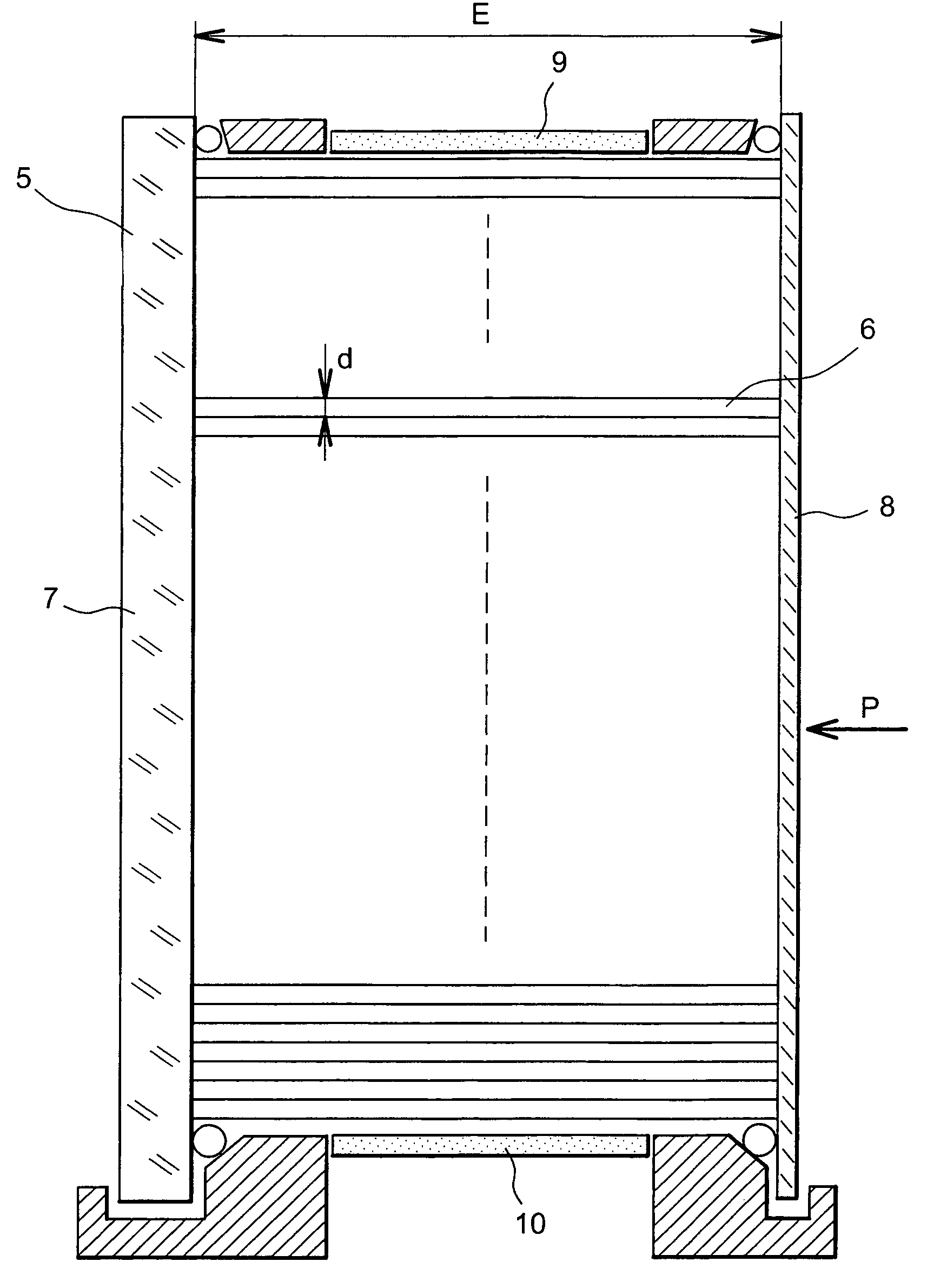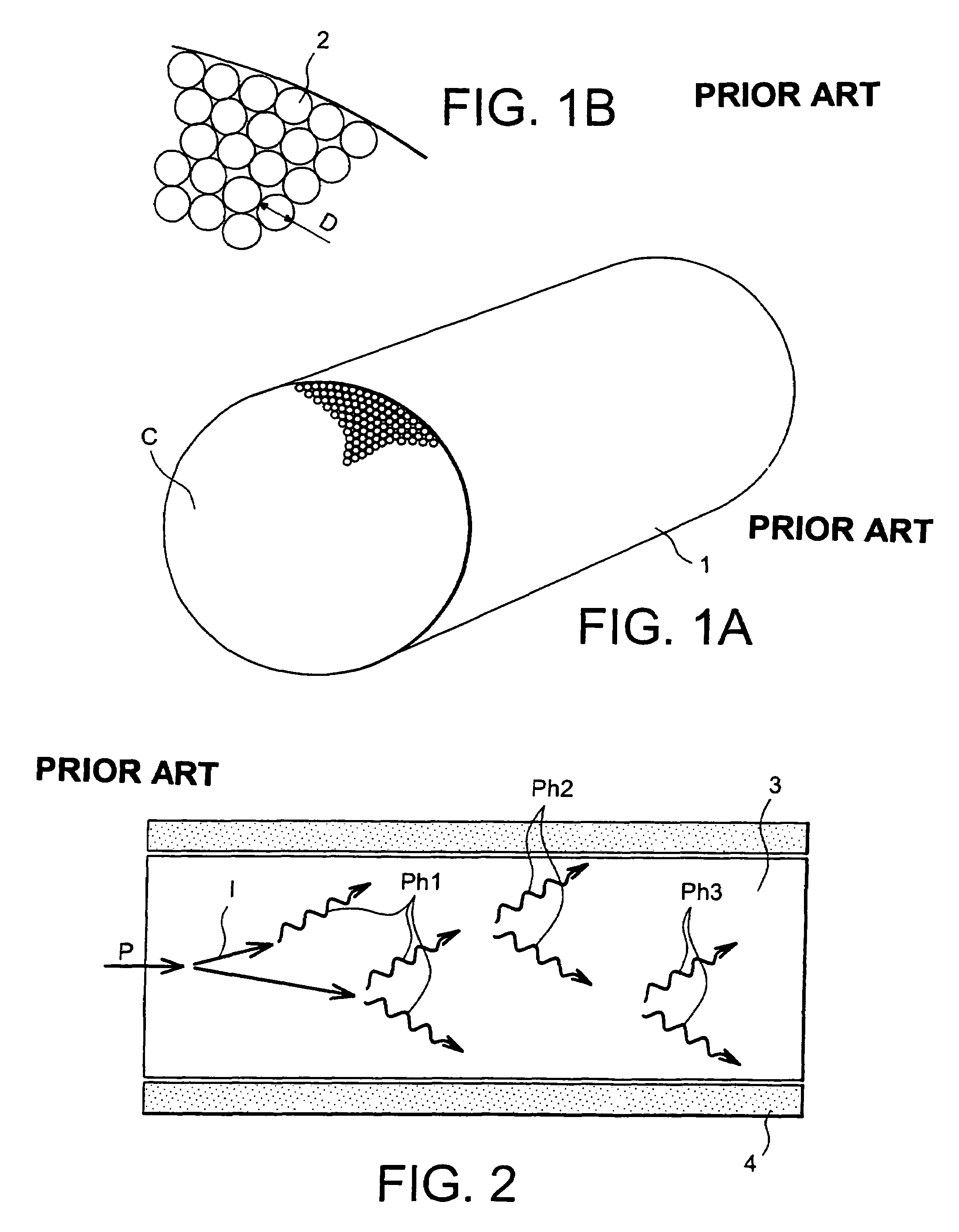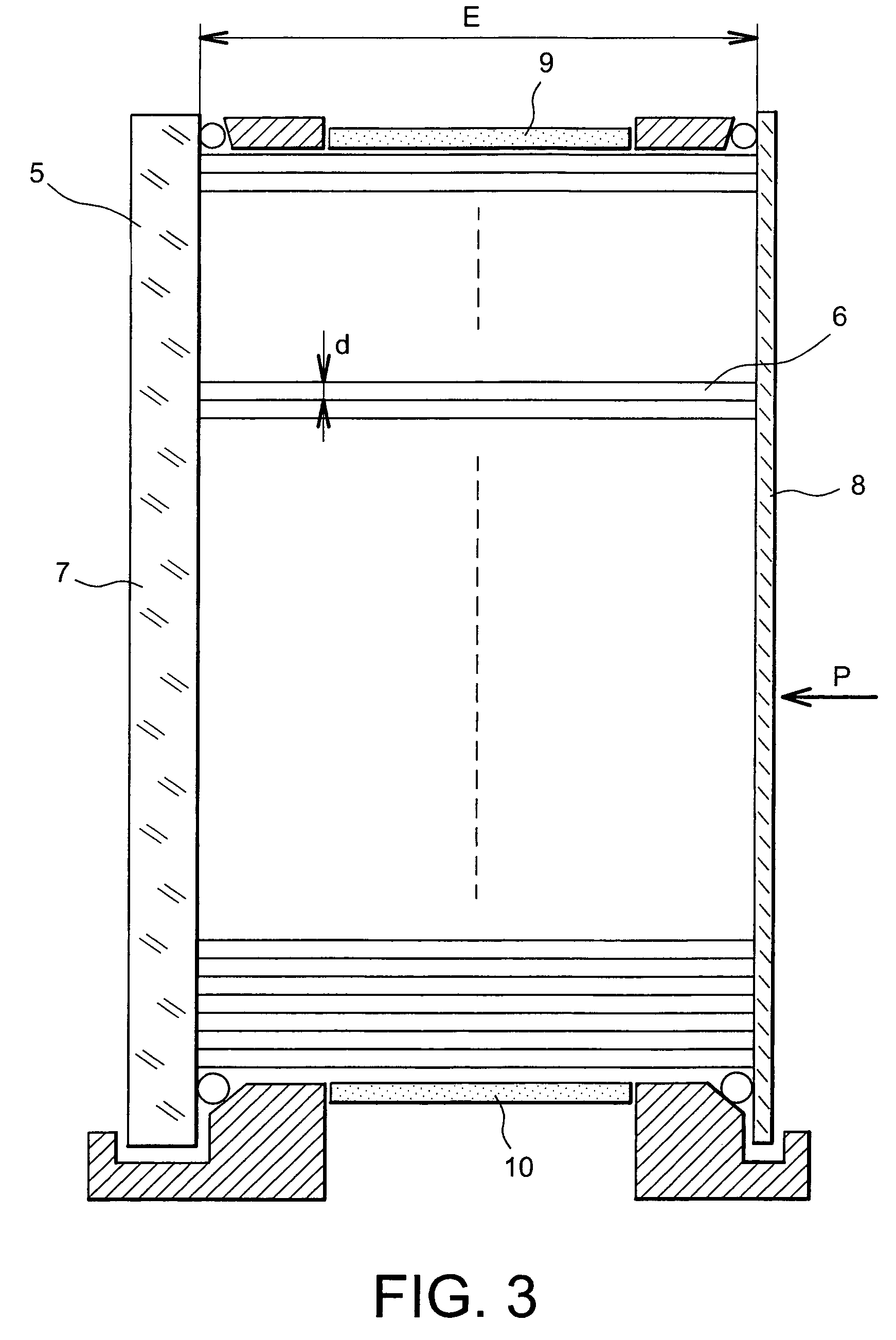Two-dimensional ionising particle detector
a detector and ionising particle technology, applied in the direction of instruments, x/gamma/cosmic radiation measurement, radiation particle tracking, etc., can solve the problems of image limit the final resolution of the source, imperfections in the regular arrangement of pixels, and the inability to guarantee the colinearity between each fibr
- Summary
- Abstract
- Description
- Claims
- Application Information
AI Technical Summary
Benefits of technology
Problems solved by technology
Method used
Image
Examples
Embodiment Construction
[0020]FIG. 3 shows a two-dimensional ionising particle detector according to the invention.
[0021]The two-dimensional detector according to the invention comprises a capillary matrix 6 filled with a liquid scintillator. The capillary matrix 6 is placed in a vat 5. For example, the capillaries have an average diameter d less than or equal to 500 μm and can be as small as 20 μm. The refraction index of glass in the capillaries may for example be 1.49. The parallelism of capillaries is less than 100 micro-radians. The path of incident particles is parallel to the centre line of the capillaries.
[0022]For example, the liquid scintillator has a refraction index of 1.57. The chemical composition of the liquid scintillator is chosen such that the average free path of primary scintillation photons is negligible compared with the diameter of the capillary. For example, the wavelength of primary scintillation photons induced in the solvent will be 300 nm.
[0023]The liquid scintillator is either ...
PUM
 Login to View More
Login to View More Abstract
Description
Claims
Application Information
 Login to View More
Login to View More - R&D
- Intellectual Property
- Life Sciences
- Materials
- Tech Scout
- Unparalleled Data Quality
- Higher Quality Content
- 60% Fewer Hallucinations
Browse by: Latest US Patents, China's latest patents, Technical Efficacy Thesaurus, Application Domain, Technology Topic, Popular Technical Reports.
© 2025 PatSnap. All rights reserved.Legal|Privacy policy|Modern Slavery Act Transparency Statement|Sitemap|About US| Contact US: help@patsnap.com



